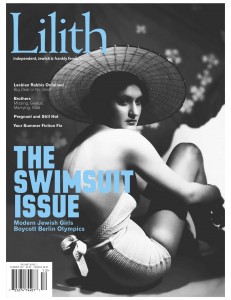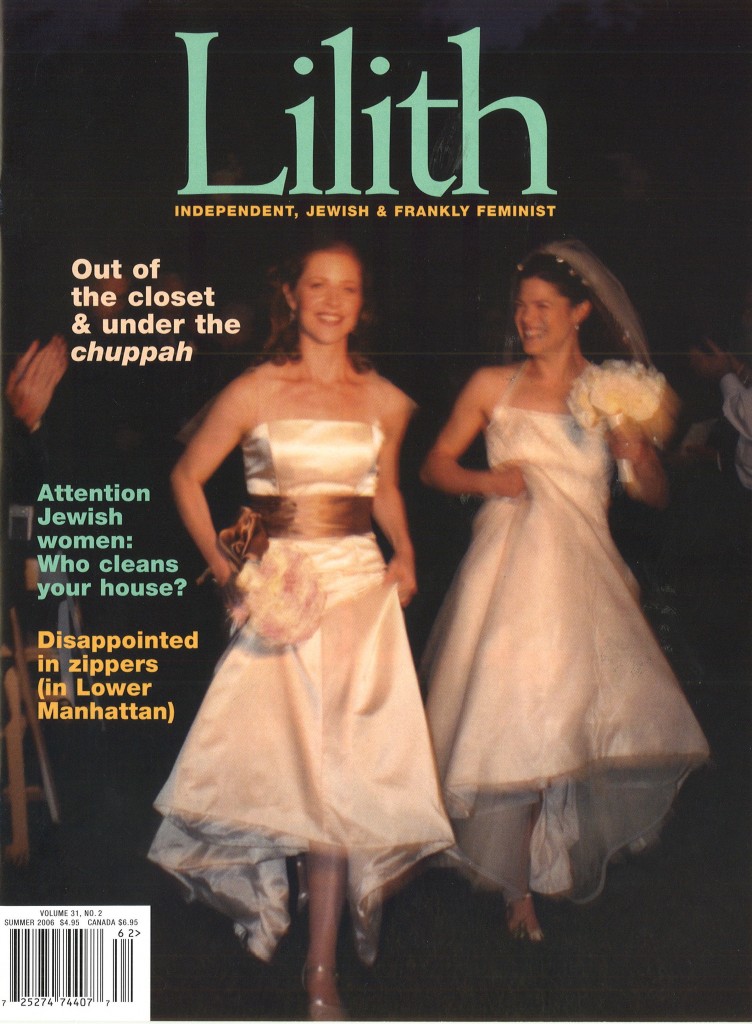August 8, 2011 by Susan Weidman Schneider
Women Are Not Part of the Intergenerational Schism in Jewish Life
Cross-posted with eJewish Philanthropy.
 eJP has reported several times on the conflicts between emerging/ startup organizations/ courting the young vs Boomers/established brands/”legacy” organizations. Here’s other news: this tension does NOT come to the fore in the world of women. Women’s legacy organizations have often been funders of, supporters of, and horn-tooters for projects initiated by younger women activists.
eJP has reported several times on the conflicts between emerging/ startup organizations/ courting the young vs Boomers/established brands/”legacy” organizations. Here’s other news: this tension does NOT come to the fore in the world of women. Women’s legacy organizations have often been funders of, supporters of, and horn-tooters for projects initiated by younger women activists.
I’ve been thinking about this as Lilith has been welcoming, enjoying – and benefiting from – our three extraordinary summer interns, who join a distinguished roster of 150 or so previous interns we’ve selected over the years. Lilith has been a kind of graduate program (underfunded, but still…) for young Jewish feminists, almost all of whom have gone on to do wonderful, innovative work in Jewish communities, and in journalism, around the globe. These young women have been nurtured, heard, and taken seriously around our conference table.
Many aspects of the new summer issue of Lilith reflect intergenerational connection, rather than conflict. The cover story focuses on young female athletes mentored by slightly older teammates. Other reports in this Lilith issue similarly reveal the power of intergenerational ties among women, even if those connections weren’t always immediately apparent.
Martin Buber once famously declared “all journeys have secret destinations of which the traveler is unaware.” One of the objectives of feminism is to cultivate a heightened awareness of where we’re headed – a raised consciousness about those destinations, even if the path’s map reveals itself after we’ve arrived.
How do we connect our own stories about life’s journeys – those revealing, shaping anecdotes, often told with studied casualness, about how we left our parents’ home, or ended up in the job we have now, or chose the partner we did – with the larger universe? One of the first tenets of the Women’s Liberation Movements was that the personal is the political. Every day, feminism teaches the alert among us that our quotidian choices have implications beyond ourselves.
This July, in Vienna, the Maccabiah Games were held for the first time in a European country that was once a Nazi stronghold. The particular pulses outward, implicating the general, with seemingly small episodes offering us larger observations. The Games gave us a chance to remember the connections among Jewish girl swimmers, some in their early teens, who became role models and role breakers in Vienna in the 1930s. They banded together and made excruciatingly difficult personal choices – including boycotting the 1936 Olympics in Hitler’s Berlin. Their star quality and their athletic prowess enabled them to escape the Nazis, rescuing their families, too. They couldn’t have known their destinations when they began to train in the Danube, but their courage and interdependency led a way out.
There’s another angle on female bodies in this issue, about women looking consciously sexy while pregnant. This is clearly a privileged preoccupation in an era when so many women, even here in the First World, don’t have access to family planning or prenatal health monitoring. Challenges to abortion rights now even include the criminalization of pregnancy in some states, where miscarriage can be read as murder. Jewish women’s legacy organizations like NCJW and Hadassah, have been outspoken supporters of the right to choose when and if to bear children.
Feminism says it’s time to reassess the judgments we make up and down the age spectrum. In the back-page memoir, a woman scrutinizes her bad behavior as a young mother, and how it feels to be on the grandmother end of things a generation later. A quiet recollection, it delivering a loud message about the ways we can open our eyes to the needs – and hear the unspoken desires – of older women.
And in good news, Amy Stone reports on what led to the ordination of the first lesbian rabbi to be out of the closet for her entire education at the Jewish Theological Seminary. Poignantly, Rabbi Rachel Isaacs chose as her rabbinic mentor Rabbi Carie Carter – a woman who, in order to become a Conservative rabbi, had to keep her sexual identity hidden for years.
 The late, great New York senator Bella Abzug once suggested that women carry stickers to affix to nonsexist ads, gender-neutral products and logos of corporations with a significant percentage of women on their boards, in order to affix to each example an announcement that “This Change Is Brought to You by Feminism.” I thought about Bella when New York State passed its groundbreaking legislation this summer ensuring the right of every gay and lesbian person to get married. (See Lilith’s archive of Jewish lesbian weddings.) Feminism built the scaffolding that enabled the changes at the seminary, the changes in the state, and the changes in our personal consciousness that make for tikkun olam, a better world.
The late, great New York senator Bella Abzug once suggested that women carry stickers to affix to nonsexist ads, gender-neutral products and logos of corporations with a significant percentage of women on their boards, in order to affix to each example an announcement that “This Change Is Brought to You by Feminism.” I thought about Bella when New York State passed its groundbreaking legislation this summer ensuring the right of every gay and lesbian person to get married. (See Lilith’s archive of Jewish lesbian weddings.) Feminism built the scaffolding that enabled the changes at the seminary, the changes in the state, and the changes in our personal consciousness that make for tikkun olam, a better world.
 Please wait...
Please wait...